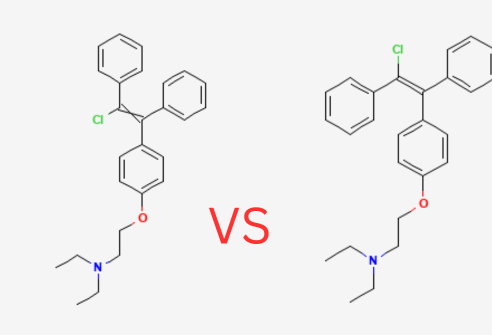Yes, alcohol can lower testosterone levels. Studies have shown that alcohol disrupts the body’s ability to produce testosterone, which can lead to various health issues for men. The effects can range from short-term dips in hormone levels after a night of heavy drinking to long-term suppression in men who consume alcohol excessively over time. Empower Men’s Clinic is here to help you understand the connection between alcohol consumption and testosterone levels, offering expert guidance and personalized treatment options to restore and maintain your hormonal health.

How Alcohol Affects Testosterone Production
Alcohol interferes with testosterone production through several mechanisms that disrupt the body’s hormonal systems.
One significant way alcohol impacts testosterone is by suppressing the hypothalamic-pituitary-gonadal (HPG) axis. This system involves the hypothalamus and pituitary gland signaling the testes to produce testosterone. When alcohol is consumed, these signals are disrupted, reducing testosterone output.
Alcohol also raises cortisol levels. Cortisol is a stress hormone that directly competes with testosterone in the body. Elevated cortisol levels can suppress testosterone production and lead to symptoms like fatigue and weight gain.
Furthermore, alcohol affects the liver, which is responsible for breaking down hormones and maintaining a balance between testosterone and estrogen. Excessive drinking strains liver function, leading to higher estrogen levels. Elevated estrogen further suppresses testosterone production and can result in feminizing effects, such as gynecomastia (breast tissue growth in men).
Short-Term Effects of Alcohol on Testosterone
Even occasional drinking can temporarily lower testosterone levels. After a single night of heavy drinking, testosterone production may drop for up to 24–48 hours. This is due to the body prioritizing alcohol metabolism over normal hormonal functions.
While these short-term effects are usually reversible, they can be problematic for men who are trying to optimize athletic performance or fertility. Lower testosterone levels during recovery from alcohol consumption can hinder muscle repair, energy levels, and libido.
Long-Term Effects of Alcohol on Testosterone
Chronic alcohol consumption has more serious and lasting consequences on testosterone production. Over time, excessive drinking can damage the Leydig cells in the testes, which are responsible for testosterone synthesis. This damage leads to consistently low testosterone levels, known as hypogonadism.
Men who drink heavily over an extended period are also at higher risk of liver disease, which further compounds hormonal imbalances. The liver’s reduced ability to process toxins and regulate hormones can lead to persistently low testosterone and elevated estrogen levels.
Long-term alcohol abuse has been linked to various symptoms of low testosterone, including decreased libido, erectile dysfunction, muscle loss, and mood disturbances. These issues can significantly impact quality of life and overall health.
Can Moderate Drinking Be Safe for Testosterone?
Moderate drinking may not significantly impact testosterone levels in healthy men. The Centers for Disease Control and Prevention (CDC) defines moderate drinking as up to two drinks per day for men. Occasional, moderate alcohol use is unlikely to cause long-term hormonal disruptions in most individuals.
However, moderation is subjective, and even moderate drinking can affect some men differently based on their overall health, genetics, and lifestyle. Men with underlying conditions, such as liver disease or obesity, may experience greater sensitivity to alcohol’s effects on testosterone.
Symptoms of Low Testosterone Caused by Alcohol
If alcohol consumption is contributing to low testosterone, men may notice the following symptoms:
- Reduced libido and erectile dysfunction
- Fatigue and low energy levels
- Difficulty building or maintaining muscle mass
- Increased body fat, especially around the abdomen
- Mood changes, including depression or irritability
These symptoms should not be ignored, as they can signal a more serious hormonal imbalance.
FAQ Section
Does TRT Cause Hair Loss?
Testosterone itself does not directly cause hair loss, but a derivative of testosterone called dihydrotestosterone (DHT) can play a role. DHT is produced when testosterone is converted by an enzyme called 5-alpha reductase. High levels of DHT can shrink hair follicles, leading to a condition called androgenetic alopecia, commonly known as male pattern baldness.
Does TRT Make You Infertile?
Testosterone can indirectly impact fertility, particularly when taken as testosterone replacement therapy (TRT). When external testosterone is introduced into the body, it can suppress the production of luteinizing hormone (LH) and follicle-stimulating hormone (FSH), both of which are essential for sperm production. Over time, this suppression can reduce or even halt sperm production, leading to infertility. It’s important to note that natural testosterone levels do not typically cause infertility in healthy men.
How Empower Men’s Clinic Can Help
If you suspect that alcohol is affecting your testosterone levels, Empower Men’s Clinic is here to help. Our team specializes in diagnosing and treating hormonal imbalances, including those caused by lifestyle factors such as alcohol consumption. At Empower Men’s Clinic, we are committed to helping you achieve your best possible health and vitality. Contact us today to schedule a consultation



